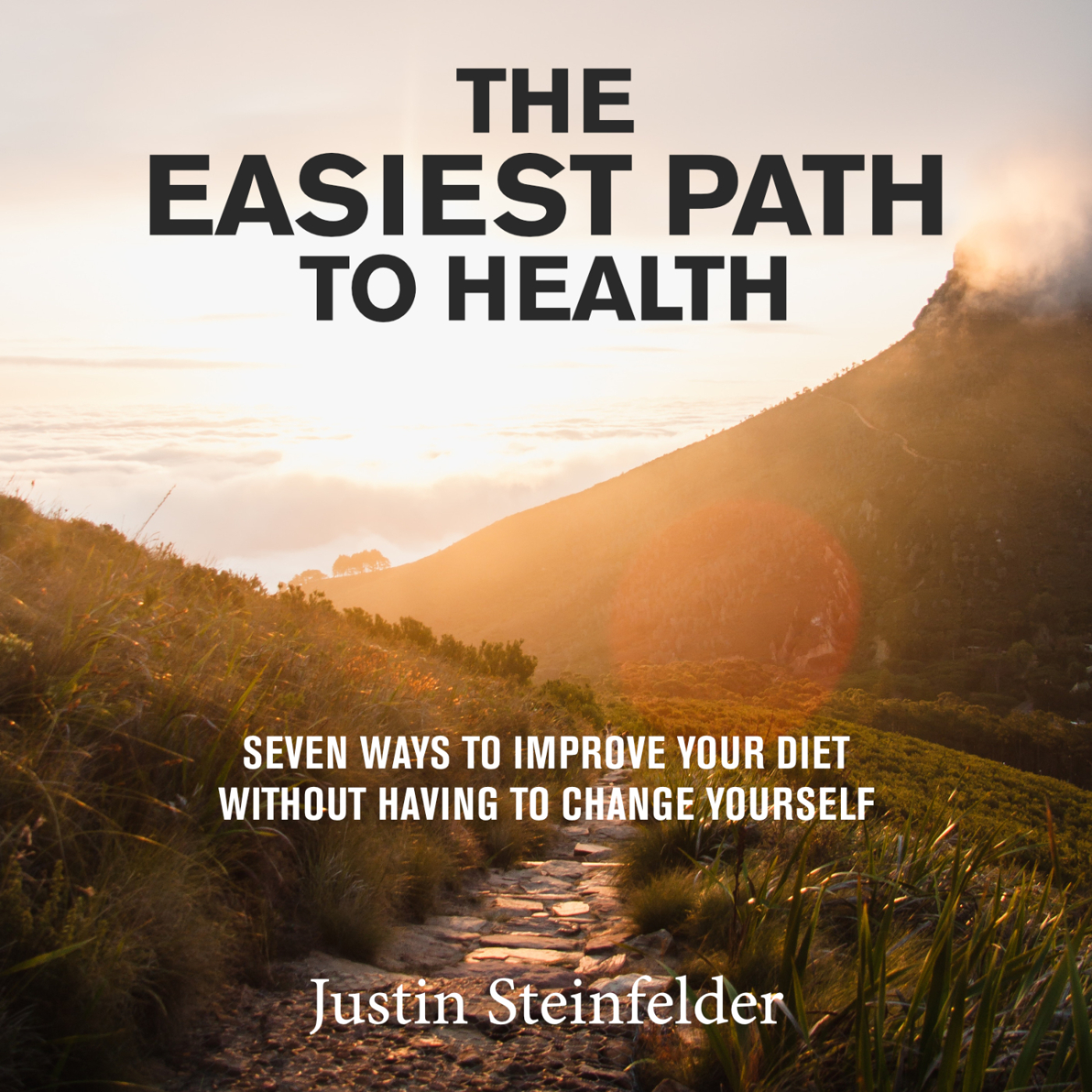The economist Tyler Cowen suggests reading for three purposes.
The first purpose of nonfiction, according to Cowen, is to solve a specific problem or fuel an interest. “The best kind of reading,” he says, “is focused reading.” For this sort of reading, Cowen suggests reading a cluster of books covering all sides.
The second purpose is to relieve ignorance. “Every area you don’t give a damn about you probably should read at least one book.” In those areas, he suggests reading the very best (as far as you can tell with ratings and recs).
As for fiction, Cowen thinks it’s “important to understand the cross-sectional variation in humanity.” And, he adds, it’s “often just plain, flat-out fun.”
It’s those three modes of reading—problem solving, relief of ignorance, and deeper human understanding (slash fun)— that built my list of the 13 best books from my 38th year. It’s my 7th year doing so (the previous four: 34th Year, 35th Year, 36th Year, 37th Year), with this, for your sake, being the shortest.
For more on most of the books, I’ll link to my Substack, One Good Think, where I’ve written more on that book. Under each title, I say whether it’s a great or good audio experience (if nothing is there, I don’t know).
At the very bottom, is my favorite book of the year.
Enjoy.
The Best Book If You Want To Get Rich
How To Get Rich by Felix Dennis (founder of Maxim Magazine)
Great Audio Experience ✅

Does money buy happiness?
Maybe it doesn’t. But, as standup G.O.A.T., Daniel Tosh says, we can be sure of one thing—poverty definitely does not buy happiness.
If you’re put off by title—reconsider. This book suffers from the same paradox as books like Tim Ferriss’ the 4-Hour Work Week—the title attracts a certain person, and repels a more thoughtful type. But it’s the latter, thoughtful reader who would benefit most.
It’s about far more than making money. The book advises on how to start and build a business, it talks about how to relieve self-doubt, and how to deal with the fear of failure. But above all, it’s a story. A story of a man who, not just made tons of money, but discovered how he did it in the wrong way and how he, often out of luck, got it right. It’s helpful. It’s honest. And it’s inspiring.
And just what is the most precious thing in life that riches can supply? Easy. For me, it’s Time. Time. Time to read and write poetry if I want to. Or to write a book if it takes my fancy. Time to travel on the slightest whim, to walk in the woods, to think, to commission art, to read, to drink, to hang out with friends and loved ones … to do just about anything really, as long as it does not involve day after grinding day making money in an office or a factory for somebody else.
For more, check out my OGT on Dennis‘ secret to dealing with the fear of failure.
The Best Biography of an All-Time Great
Einstein: His Life and His Universe by Walter Isaacson
Good Audio Experience ✅
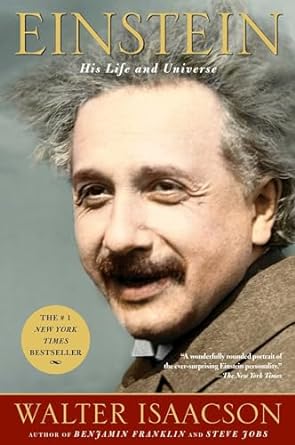
Isaacson’s Einstein— just like his book on Steve Jobs— has that powerful mixture one seeks in great biographies: knowledge about a foreign subject matter, inspiration, and insights, like this one:
He was a loner with an intimate bond to humanity, a rebel who was suffused with reverence. And thus it was that an imaginative, impertinent patent clerk became the mind reader of the creator of the cosmos, the locksmith of the mysteries of the atom and the universe.
For me, that knowledge included a bit of outside study. In order to understand the story of Einstein, you have to, I think, at each introduction of a hard concept like relativity (or the electromagnetic field, or gravity) do some homework. Go watch videos and listen to simple explanations, to try to understand, best you can, the leaps that Einstein made.
For more on Einstein, here’s my OGT on How Einstein Earned His Intuition.
The Best Contemporary Novel
Tomorrow, and Tomorrow, and Tomorrow by Gabrielle Zevin.

A central theme of Zevin’s best-seller was collaborative creativity.
For me, this was specifically appealing in that it was partially about something in which I’m ignorant (design and gaming) and partially about about something in which I have interest (startups and artistry). The mix of the two allows for both familiarity and exploitation—a nice mixture.
There are two other reasons it was great.
First, I liked the dialogue. I found it realistic, humorous, and, in a sense, foreign. Both main characters have perspectives and backgrounds to which I cannot relate. This hits on a fundamental reason to read fiction: it helps you understand the range of human experience. It increases your ability to empathize.
Second, I found the story interesting, unpredictable, and emotional, and I was engaged the entire time. The emotions ranged, including one that I oddly like to access from time to time—sadness.
The title, by the way, comes from Shakespeare’s Macbeth.
“Tomorrow, and tomorrow, and tomorrow,
Creeps in this petty pace from day to day,
To the last syllable of recorded time;
And all our yesterdays have lighted fools
The way to dusty death. Out, out, brief candle!
Life’s but a walking shadow, a poor player,
That struts and frets his hour upon the stage,
And then is heard no more. It is a tale
Told by an idiot, full of sound and fury,
Signifying nothing.”
It seems grim, but Zevin’s read of it is more hopeful. That each day is a new chance to start over.
For more, here’s my OGT from Tomorrow on creativity.
The Best Book For Comedians; or People Who Like Humorous and Story-driven Self-Help (and runner-up for best audio experience)
Before and Laughter: A Life-Changing Book by Jimmy Carr
Great Audio Experience ✅

“The reason I’m writing this book (other than the generous advance) is that I have a son now (congratulations me), and if I die, what will I leave him? Hours and hours of dick jokes. ‘My father? I don’t remember much, but he sure had a lot of dick jokes.’ ‘Boy, sit down. This is a funeral.’ Well, there’s more to me than just dick jokes . . . slightly more.”
If you saw Jimmy Carr on, for instance, the Roast of Rob Lowe, you’d know he’s funny, but brutal. If you then watched a special of his, you’d see he’s more creative and subtle. But it would take you reading this book to know how insightful and practical he is.
The book is self-help, comedy, and memoir wrapped into one. Carr gives you lessons from his life—from leaving his corporate job, to dealing with the early death of his mother and tax problems with the IRS, to going from nothing to one of the top comedians in the world—but he wraps them in hilarity. It’s like a mix between Colin Jost’s memoir, and The Subtle Art of Not Giving A F*ck.
But here’s the thing about being human: if we put off doing anything risky for long enough, fear will attach itself. Then what happens is that fear will attract even more fear until the fear becomes so big it starts to obscure the thing you mean to do. Fuck that shit. Feel the fear and fuck it anyway.”
For Carr on Imposter Syndrome–check out my OGT.
The Best Book on Behavioral Science and Motivation
Get It Done: Surprising Lessons from the Science of Motivation by Professor Ayelet Fishbach
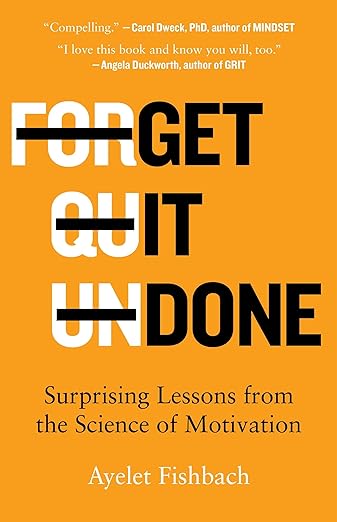
if you’re going to try to change an important behavior, you’re best bet is listening to the top experts.
For example, let’s say you want to build good habits. James Clear’s Atomic Habits is good. Charles Duhigg’s The Power of Habit is great. But Professor Wendy Wood’s Good Habits, Bad Habits is the most scientifically sound. So if you want to change your habits, I’d base your decisions on Dr. Wood’s science, and then follow Clear and Duhigg’s anecdotes to the extent they align with Wood’s expertise.
For the subject of motivation, I’d follow the same model. Read Dan Pink’s Drive for sure. But probably fact check it against this book by University of Chicago psychologist, Ayelet Fishbach.
“Powerful goals feel worth the price tag—they pull you toward your greatest wish. And in order to pull you, a goal has to feel more like an aspiration and less like a chore.”
For one surprising idea on maximizing motivation, read my OGT.
The Best Business Book
$100 Million Dollar Offers by Alex Hormozi
Good Audio Experience ✅

Hormozi is the sort of guy that can come off like a BS douche, but ends up being the real deal.
He’s not only the reason deal in that he’s built and sold businesses—and so he knows his shit—he’s also smart. Hormozi has a way—like Tim Ferriss, like Paul Graham—of breaking down complicated concepts in to simple ideas and actions. Action—that might be the best way to describe Hormozi in a single word.
In this book, Hormozi breaks down how to create your “offer”—the presentation of your product to a potential client. The first thing you have to do is find something that some specific set of people want, and explain what that thing is to them. That’s what you’ll learn how to do in this book.
“No offer? No business. No life. Bad offer? Negative profit. No business. Miserable life. Decent offer? No profit. Stagnating business. Stagnating life. Good offer? Some profit. Okay business. Okay life. Grand Slam Offer? Fantastic profit. Insane business. Freedom.”
I also read $100mm Leads, which was also great (and here’s my OGT his “rule of 100”). That comes second. First you figure out what you’re going to sell, and then you go find people likely to buy (leads).
The Best Book For General Success
The Diary of a CEO: The 33 Laws of Business and Life, Steven Bartlett
Great Audio Experience ✅
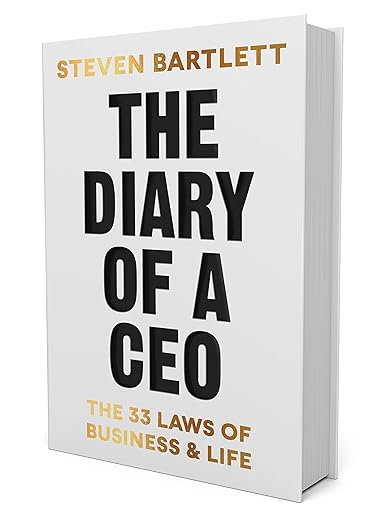
Steven Bartlett is one of those nothing-to-something CEOs who started off young (age 19), poor, but ambitious.
He used that ambition, his resourcefulness, and Intelligence to build and sell multiple businesses. He then started a podcast called The Diary of a CEO, which is one of the largest podcasts in the world. The book is a compilation of lessons learned from that climb, and from talking to world renowned experts, athletes, founders, and artists.
I think I first came across Steven Bartlett from Chris Williamson’s Modern Wisdom podcast (where I learned this lesson). That was a lucky day, because from that, came one of my favorite handful of podcast episodes of the year, and one my favorite books.
I breakdown one of my favorite lessons in my OGT about Bartlett, but I could write 10 of them. IT’s the sort of book I’ll listen to (Bartlett read it) and read many times over.
“The most convincing sign that someone will achieve new results in the future is new behaviour in the present.”
The Best True Memoir
Wild by Cheryl Strayed

A few years after her mother died of cancer and her first marriage crumbled, Cheryl Strayed decided to hike—alone for months, with zero experience— on the Pacific Crest Trail (the PCT). Wild is about that hike and what she learned about life and herself along the way.
The value of this book is two-fold. First, the long, lonely hike, is easily translatable to any sort of pursuit you’re on. Watching Strayed on the hike, it’s easy to imagine how you might fit in. Second, Strayed’s personal takeaways—about love and loss, about fear and resilience– are profound.
“I was amazed that what I needed to survive could be carried on my back. And, most surprising of all, that I could carry it.”
I wrote more about what Strayed learned about resilience.
The Best Collection of Self-Help One-Liners With Zero Fluff From an Artist / Entrepreneur / Futurist
Excellent Wisdom For Life by Kevin Kelly
Can Be A Good Audio Experience ✅
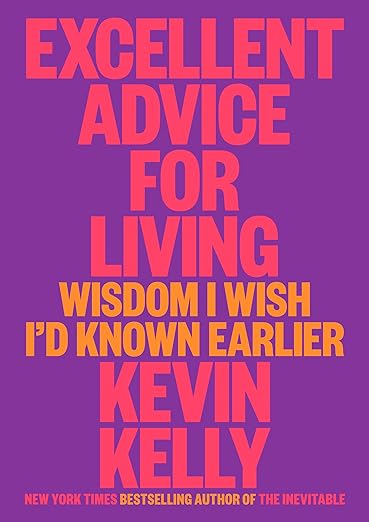
Kevin Kelly, the founding editor of Wired Magazine, has been collecting ideas for decades.
On his 68th birthday, he started to compile this wisdom into a list to share with his kids. The article was so widely read, he repeated it a couple more times. This book is the result. It’s a list of ideas Kelly has found to be true from the practical to the philosophical.
Separate the processes of creating from improving. You can’t write and edit or sculpt and polish or make and analyze at the same time. If you do, the editor stops the creator. While you invent, don’t select. While you sketch, don’t inspect. While you write the first draft, don’t reflect. At the start, the creator mind must be unleashed from judgment.
See that old person taking forever in line? That is the future you. Have patience.
For some more of my favorites, check out my OGT.
The Best Part Self-Help, Part Memoir By a Former Bodybuilding Champion
Be Useful: Seven Tools For Life, By Arnold
Great Audio Experience ✅
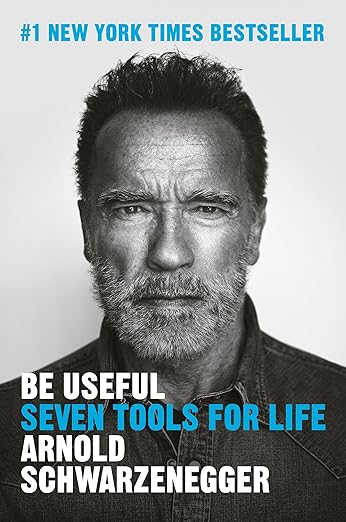
If you’re an Arnold nut, you have several choices.
You can read Total Recall –Arnold’s memoir from 2012– a 600+ pager, going into detail about Arnold’s life. You can read The Education of a Bodybuilder (1993) if you want a slightly more raw book with more detail about his origin story. You can watch Arnold, his Netflix documentary which is sort of a summary of Total Recall.
Or, you can listen to this book, a self-help slash mini-memoir with direct advice supported by story, and read by Arnold. If you’re looking for more manicured advice or inspiration (rather than story), I’d start here.
The happiest and most successful people in the world do everything in their power to avoid bad decisions that confuse matters and drag them away from their goals. Instead, they focus on making choices that bring clarity to their vision and bring them closer to achieving it. It doesn’t matter if they’re considering a small thing or a huge thing, the decision-making process is always the same. The only difference between them and us, between me and you, between any two people, is the clarity of the picture we have for our future, the strength of our plan to get there, and whether or not we have accepted that the choice to make that vision a reality is ours and ours alone.”
For more of a primer, check out my OGT on Arnold’s second rule: “Never Think Small.“
The Best Pulitzer-Prize Quality History and Story of The Science of Genetics
The Gene: An Intimate History by Siddartha Mukherjee

This book is hard.
But that’s more owing to its abstract subject than its author. As anyone who has ever read the Pulitzer winner, The Emperor of All Maladies: A Biography of Cancer (which I discuss here) or any of Mukherjee’s article’s in The New Yorker, you know. With stories spanning 200 years, from Darwin and Mendel (mid 1800s), to Watson, Crick and Franklin (mid-1900s), to the Human Genome Project (1990s), to Jennifer Doudna’s CRISPR (2015), Mukherjee makes it not only manageable for the curious mind, but compelling.
One way he does this is to create analogous footholds. These are assertions and puzzles—such as the the OGT on innovation which I wrote about here—that ensure that, even if the reader stumbles on the intractable mountain of genetics, they can catch their balance on little ledges of concept and thought. There must be 100.
“The universe seeks equilibriums; it prefers to disperse energy, disrupt organization, and maximize chaos. Life is designed to combat these forces. We slow down reactions, concentrate matter, and organize chemicals into compartments; we sort laundry on Wednesdays. “It sometimes seems as if curbing entropy is our quixotic purpose in the universe,” James Gleick wrote. We live in the loopholes of natural laws, seeking extensions, exceptions and excuses. The laws of nature still mark the outer boundaries of permissibility – but life, in all its idiosyncratic, mad weirdness, flourishes by reading between the lines.”
The Best Book of Essays About Biology, Medicine, The Earth, and Life
The Lives of a Cell: Notes of a Biology Watcher by Dr. Lewis Thomas

This book won the 1975 National Book Award. Why?
It wasn’t for its content alone–though that is profound. It’s not just the what, but the how. In the way of Carl Sagan, Rachel Carson, and Siddartha Mukherjee, these writings by the former head of Yale’s medical school, were not only, at baseline, readable by the average of us, but also, at skyline, poetic enough to drive wonder.
I wrote about one of my favorite essays in my OGT, but they’re all great. You learn, you’ll be moved, and, with any luck, you’ll start to look at things around you a little differently.
“The uniformity of the earth’s life, more astonishing than its diversity, is accountable by the high probability that we derived, originally, from some single cell, fertilized in a bolt of lightning as the earth cooled. It is from the progeny of this parent cell that we take our looks; we still share genes around, and the resemblance of the enzymes of grasses to those of whales is a family resemblance”
The Best Overall Book (and best poetic description of hard problems in physics)
Seven Brief Lessons on Physics by Carlo Rovelli

It happened for me when I read Carse’s Fine and infinite Games.
It happened when I read The Writing Life, and Paulo Coelho, and The Prince. It happened when I read The Stranger and Gatsby, when I read Will Durant and Emerson, and on a west-bound flight as I read The Old Man and the Sea.
They are tiny books that, you don’t pick up the pace to get through, but slow down in order to remain. Like a great day where you don’t want to go home, these books make reading what Stephen King called, “uniquely portable magic.”
This year, it happened again courtesy of the Italian theoretical physicist, Carlo Rovelli.
You read Rovelli, and you get this sense: that he spends his life glued to the ground, but with his mind suspended in space. That he’s aboard Miss Frizzle’s bus, eating kids snacks while riding the tail of a star. He invites you on. And for a brief moment—seven, actually— you get on.
Except, while on The Frizz’s bus, there was always a clear lesson. In Rovelli, there’s a contradiction. After reading it, you feel you’ve lost something. A grip, for one. Reality for two. Like sand in a tightened fist, it empties the tighter you try to clench. Yet, you’re sure of it, you’ve grown, you’ve gained; even if exactly how, you cannot say.
“There are frontiers where we are learning, and our desire for knowledge burns. They are in the most minute reaches of the fabric of space, at the origins of the cosmos, in the nature of time, in the phenomenon of black holes, and in the workings of our own thought processes. Here, on the edge of what we know, in contact with the ocean of the unknown, shines the mystery and the beauty of the world. And it’s breathtaking.”
Read more in my OGT about Rovelli’s profound insight into Einstein’s relativity.

